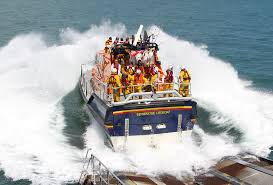The Importance of the RNLI in Maritime Safety

Introduction
The Royal National Lifeboat Institution (RNLI) is an exemplary lifeline across the UK and Ireland, renowned for its critical role in maritime safety. Established in 1824, the RNLI has saved over 142,700 lives, providing vital rescue services on the sea and coastal areas. As the U.K. continues to witness an increase in water-based activities, understanding the significance of the RNLI’s work remains paramount for public safety and awareness.
Recent Events and Achievements
In 2023, the RNLI celebrated a milestone by launching its new Shannon-class lifeboats, which are designed with cutting-edge technology for enhanced operational efficiency. The new boats are quicker, safer, and more versatile, allowing volunteers to respond promptly to emergencies. Recent incidents have highlighted the need for such advancements; in July alone, RNLI volunteers responded to over 500 callouts during a span of just two weeks, an increase attributed to the surge in popularity of water sports during the summer months.
Community Engagement and Education
Beyond rescues, the RNLI is committed to educating the public about water safety. Their community outreach programs focus on teaching the importance of safety measures when engaging in water-related activities. Initiatives like ‘Respect the Water’ aim to reduce accidental drownings by raising awareness of the dangers of cold water shock and currents. The RNLI also leverages social media to disseminate critical safety information, ensuring that people are informed before they venture onto the water.
Volunteer Efforts and Challenges
The volunteers of the RNLI are the backbone of the organisation. Comprising over 23,000 dedicated individuals, they undertake rigorous training to ensure preparedness in diverse and often challenging situations. However, the RNLI faces financial challenges, particularly as donations have fluctuated due to economic uncertainties. Recently, the RNLI launched new fundraising campaigns, including virtual events and merchandise sales, to secure funds that are crucial for training and equipment maintenance.
Conclusion
The RNLI stands as a beacon of hope and safety on the waterways of the UK and beyond. Its dedication to saving lives at sea, coupled with community engagement efforts to promote water safety, underscores its significance as a charitable institution. As the popularity of maritime activities grows, continued support for the RNLI’s operations and volunteer efforts is essential to ensuring that everyone can enjoy the water safely. Looking ahead, it is crucial for communities to rally behind the RNLI, understanding that every donation contributes to a safer maritime environment for all.








